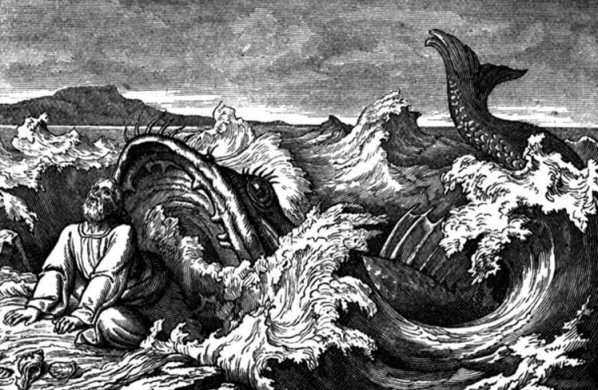Most of us are familiar with the Biblical story of Jonah. It is a story that entrenched itself into the culture around us. Even the widely popular movie The Avengers assumed the culture’s familiarity with this story in the classic showdown between Iron Man and one of the Leviathan monsters. Even the AI Jarvis knew of Jonah – and that he was not a model to be emulated.
Just to refresh your memories on the arc of the story, allow me to fill in the main points briefly. Jonah was a prophet who was called by God to go and preach to the Gentile city of Nineveh. Jonah didn’t like Gentiles, however, and he would have preferred to preach to his people – the Jews. So, he comes up with an elaborate plot to run from Nineveh by getting on a boat heading to Tarshish, the exact opposite direction of Nineveh! The Lord had other plans for Jonah, and so he sent a great storm upon his boat. The rest of the passengers on the boat realize that Jonah is the cause of the great storm descending upon their boat, and so they hurled Jonah into the sea where he was then eaten by a great fish. Jonah was kept alive in the belly of the fish for three days until he was repentant, at which point the fish spit him out and Jonah proceeded to go to Nineveh, just as God had always wanted.
You’ve probably heard various sermons and messages on this story, presumably about the will of God and his sovereignty over our lives. Yet, something very interesting happens very early on in this story that I think most of us overlook. While Jonah is on the boat with the mariners, they ask him of what people and country he comes from. Jonah’s response is striking. He says, “I am a Hebrew, and I fear the Lord, the God of heaven, who made the sea and the dry land (Jonah 1:9).” In other words, Jonah is saying that he has a great reverence for God and worships him in everything that he does. Note the irony here – Jonah is in the midst of running from the explicit task God has given him over his life, yet is telling others that he has a reverent fear for the Lord!
What we can take away from this is that Jonah is not only an example of what it means to know that God is sovereign over our lives, but he is also a bad example of what it means to pursue our God-given vocations.
There is a common misconception in Christian circles that the goal of Christian vocation is primarily to evangelize and bring a gospel witness to the workplace. I have heard it said by pastors that our vocations are really just a mask and a cover for God’s true purpose in our workplace – evangelism. I understand what they’re trying to do with such arguments, but unfortunately this conveys an unbiblical and non-Christian view of a God-honoring work ethic.
Jonah was a prophet. God’s call for Jonah as a prophet was to go to Nineveh and preach to the Gentiles. God-honoring obedience and a proper sense of his vocation should have driven Jonah to go to Nineveh. Were Jonah to originally have done this, he would have been a good prophet and an obedient prophet. He would have fulfilled God’s purposes for his vocation.
In a similar way, we all have vocations. Some of us are nurses, others are software developers or business analysts. Some of us are lawyers, and others are students or janitors. Regardless of where you find yourself on this vocational spectrum, one thing should be clear to us from the story of Jonah: we are called to be good and obedient at what we do. Perhaps we could even say that the most important part of our vocation is not what we are doing but how we do it. To put it another way, perhaps instead of focusing so much on what God has called us to do, we should focus on how we are doing the vocations God has currently placed us in. The primary goal for you in your vocation is not to evangelize (although this is important), but it is to have a reverent sense of fear and worship for God in what you do. We are called to be faithful and excellent employees, regardless of our trade or our occupation. This brings God glory and honor for who he is, as we praise him in all areas of our lives – including our vocations.
We can draw this principle from the New Testament as well. The Apostle reminds us, “Whatever you do, work heartily, as for the Lord and not for men, knowing that from the Lord you will receive the inheritance as your reward. You are serving the Lord Christ (Colossians 3:23-24).” Our vocations are a means to work as if unto the Lord. Through the work we do with our minds and our hands, we bring God glory when it is work given over to him.
Christian, be encouraged today that God has called you to serve him in all walks of life, including your vocation. See your jobs and workplaces as a means by which you can serve God and worship him. You are free to strive for excellence at your vocation not to bring glory to yourself, but in order to worship God. Find joy in the fact that God has chosen you to work unto him with the gifts he has given you.

